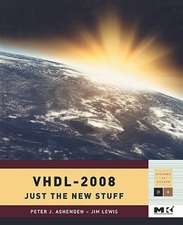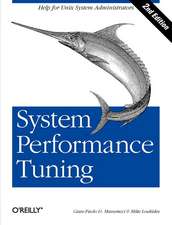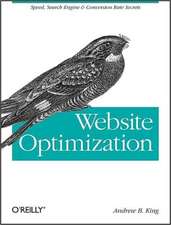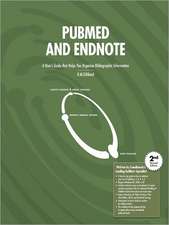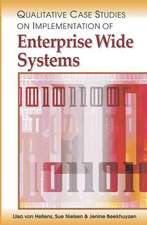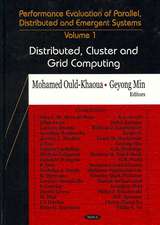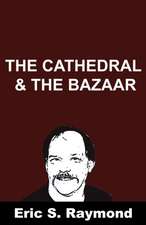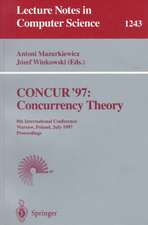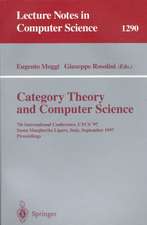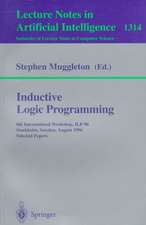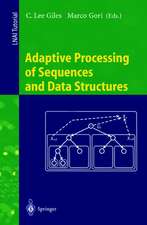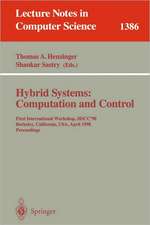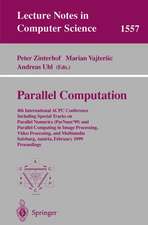The Art of Unix Programming: Addison-Wesley Professional Computing
Autor Eric S. Raymonden Limba Engleză Paperback – 30 sep 2003
The Art of UNIX Programming poses the belief that understanding the unwritten UNIX engineering tradition and mastering its design patterns will help programmers of all stripes to become better programmers. This book attempts to capture the engineering wisdom and design philosophy of the UNIX, Linux, and Open Source software development community as it has evolved over the past three decades, and as it is applied today by the most experienced programmers.
Eric Raymond offers the next generation of "hackers" the unique opportunity to learn the connection between UNIX philosophy and practice through careful case studies of the very best UNIX/Linux programs. In addition, commentary is provided by Brian Kernighan, UNIX pioneer and best-selling author; Doug McIlroy, the inventor of the UNIX pipg; David Korn, the inventor of the korn shell; Jim Gettys and Keith Packard, inventors of X windows; Henry Spencer, an original UNIX hacker; and Ken Arnold, an original BSD developer and JINI creator; Mike Lesk, author of the legendary uucp, lex, and tbl programs; and Sturat Feldman, author of UNIX's famous make utility.
The book is divided into 4 parts. Part I explores the philosophy behind the development of UNIX. Part II explores design principles and patterns that are at the core of the UNIX tradition. Part III covers the rich UNIX tradition of reuse and the amazing variety of programming tools available to the UNIX developer. Part IV explores the UNIX open standards process, and the advantage in portability that UNIX enjoys.
Preț: 290.12 lei
Preț vechi: 362.65 lei
-20% Nou
55.51€ • 57.97$ • 45.84£
Carte disponibilă
Livrare economică 25 martie-08 aprilie
Livrare express 11-15 martie pentru 43.50 lei
Specificații
ISBN-10: 0131429019
Pagini: 560
Dimensiuni: 177 x 235 x 20 mm
Greutate: 0.79 kg
Ediția:New.
Editura: Addison-Wesley Professional
Seria Addison-Wesley Professional Computing
Locul publicării:Boston, United States
Descriere
Cuprins
1. Philosophy.
Culture? What culture?The durability of Unix.The case against learning Unix culture.What Unix gets wrong.What Unix gets right.Basics of the Unix philosophy.The Unix philosophy in one lesson.
Applying the Unix philosophy.Attitude matters too.2. History.
Origins and history of Unix, 1969-1995.Origins and history of the hackers, 1961-1995.The open-source movement: 1998 and onward.The lessons of Unix history.3. Contrasts.
The elements of operating-system style.Operating-system comparisons.What goes around, comes around. II. DESIGN.
4. Modularity.
Encapsulation and optimal module size.Compactness and orthogonality.Libraries.Unix and object-oriented languages.Coding for modularity.5. Textuality.
The Importance of Being Textual.Data file metaformats.Application protocol design.Application protocol metaformats.6. Transparency.
Some case studies.Designing for transparency and discoverability.Designing for maintainability.7. Multiprogramming.
Separating complexity control from performance tuning.Taxonomy of Unix IPC methods.Problems and methods to avoid.Process partitioning at the design level.8. Minilanguages.
Taxonomy of languages.Applying minilanguages.Designing minilanguages.9. Transformation.
Data-driven programming.Ad-hoc code generation.10. Configuration.
What should be configurable?Where configurations live.Run-control files.Environment variables.Command-line options.How to choose among configuration-setting methods.On breaking these rules.11. Interfaces.
Applying the Rule of Least Surprise.History of interface design on Unix.Evaluating interface designs.Tradeoffs between CLI and visual interfaces.Transparency, expressiveness, and configurability.Unix interface design patterns.Applying Unix interface-design patterns.The Web browser as universal front end.Silence is golden.12. Optimization.
Don't just do something, stand there!Measure before optimizing.Non-locality considered harmful.Throughput vs. latency.13. Complexity.
Speaking of complexity.A Tale of Five Editors.The right size for an editor.The right size of software. III. IMPLEMENTATION.
14. Languages.
Unix's Cornucopia of Languages.Why Not C?Interpreted Languages and Mixed Strategies.Language evaluations.Trends for the Future.Choosing an X toolkit.15. Tools.
A developer-friendly operating system.Choosing an editor.Special-purpose code generators.Make in non-C/C++ Development.Version-control systems.Run-time debugging.Profiling.Emacs as the universal front end.16. Re-Use.
The tale of J. Random Newbie.Transparency as the key to re-use.From re-use to open source.The best things in life are open.Where should I look?What are the issues in using open-source software?Licensing issues. IV. COMMUNITY.
17. Portability.Evolution of C.Unix standards.Specifications as DNA, code as RNA.Programming for Portability.Internationalization.Portability, open standards and open source.18. Documentation.
Documentation concepts.The Unix style.The zoo of Unix documentation formats.The present chaos and a possible way out.The DocBook toolchain.How to write Unix documentation.19. Open Source.
Unix and open source.Best practices for working with open-source developers.The logic of licenses: how to pick one.Why you should use a standard license.Varieties of Open-Source Licensing.20. Futures.
Essence and accident in Unix tradition.Problems in the design of Unix.Problems in the environment of Unix.Problems in the culture of Unix.Reasons to believe.A. Glossary of Abbreviations.
B. References.
C. Contributors.
Notă biografică
Textul de pe ultima copertă
--Kent Beck, author of Extreme Programming Explained, Test Driven Development, and Contributing to Eclipse
"A delightful, fascinating read, and the lessons in problem-solvng are essential to every programmer, on any OS."
--Bruce Eckel, author of Thinking in Java andThinking in C++
Writing better software: 30 years of UNIX development wisdom
In this book, five years in the making, the author encapsulates three decades of unwritten, hard-won software engineering wisdom. Raymond brings together for the first time the philosophy, design patterns, tools, culture, and traditions that make UNIX home to the world's best and most innovative software, and shows how these are carried forward in Linux and today's open-source movement. Using examples from leading open-source projects, he shows UNIX and Linux programmers how to apply this wisdom in building software that's more elegant, more portable, more reusable, and longer-lived.
Raymond incorporates commentary from thirteen UNIX pioneers:
- Ken Thompson, the inventor of UNIX.
- Ken Arnold, part of the group that created the 4BSD UNIX releases and co-author of The Java Programming Language.
- Steven M. Bellovin, co-creator of Usenet and co-author of Firewalls and Internet Security.
- Stuart Feldman, a member of the Bell Labs UNIX development group and the author of make and f77.
- Jim Gettys and Keith Packard, principal architects of the X windowing system.
- Steve Johnson, author of yacc and of the Portable C Compiler.
- Brian Kernighan, co-author of The C Programming Language, The UNIX Programming Environment, The Practice of Programming, and of the awk programming language.
- David Korn, creator of the korn shell and author of The New Korn Shell Command and Programming Language.
- Mike Lesk, a member of the Bell Labs development group and author of the ms macro package, the tbl and refer tools,lex and UUCP.
- Doug McIlroy, Director of the Bell Labs research group where UNIX was born and inventor of the UNIX pipe.
- Marshall Kirk McKusick, developer of the 4.2BSD fast filesystem and a leader of the 4.3BSD and 4.4BSD teams.
- Henry Spencer, a leader among early UNIX developers, who created getopt, the first open-source string library, and a regular-expression engine used in 4.4BSD.
Caracteristici
- Written by Open Source icon and GNU pioneer Eric S. Raymond—the author of The Cathedral and the Bazaar
- Learn how the UNIX masters design software that is fast, portable, reuseable, modular, and long-lived.
- Includes cameo appearances by UNIX luminaries Brian Kernighan, Doug McIlroy, David Korn, Jim Gettys, Keith Packard, Henry Spencer, Ken Arnold, Mike Lesk, and Stuart Feldman.




